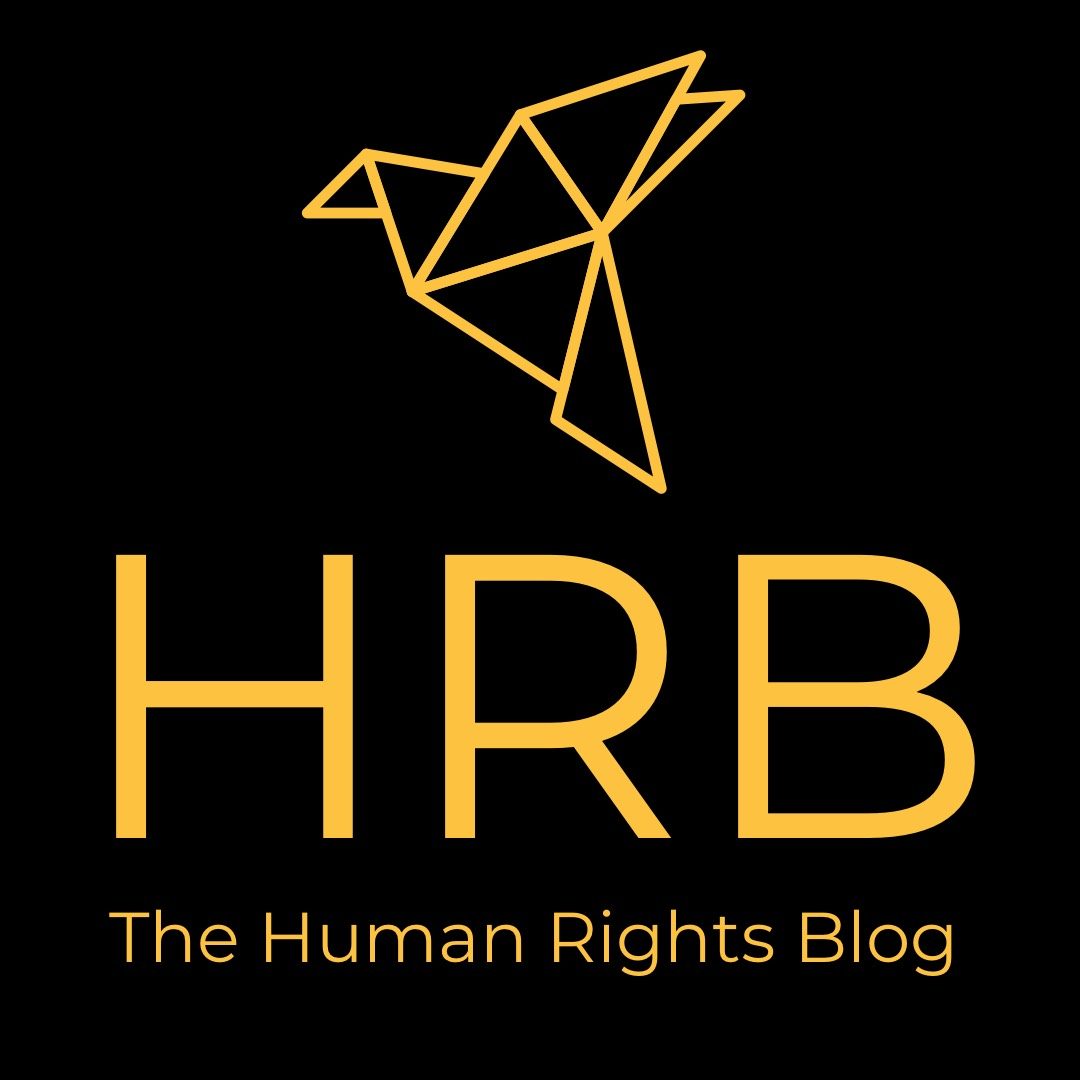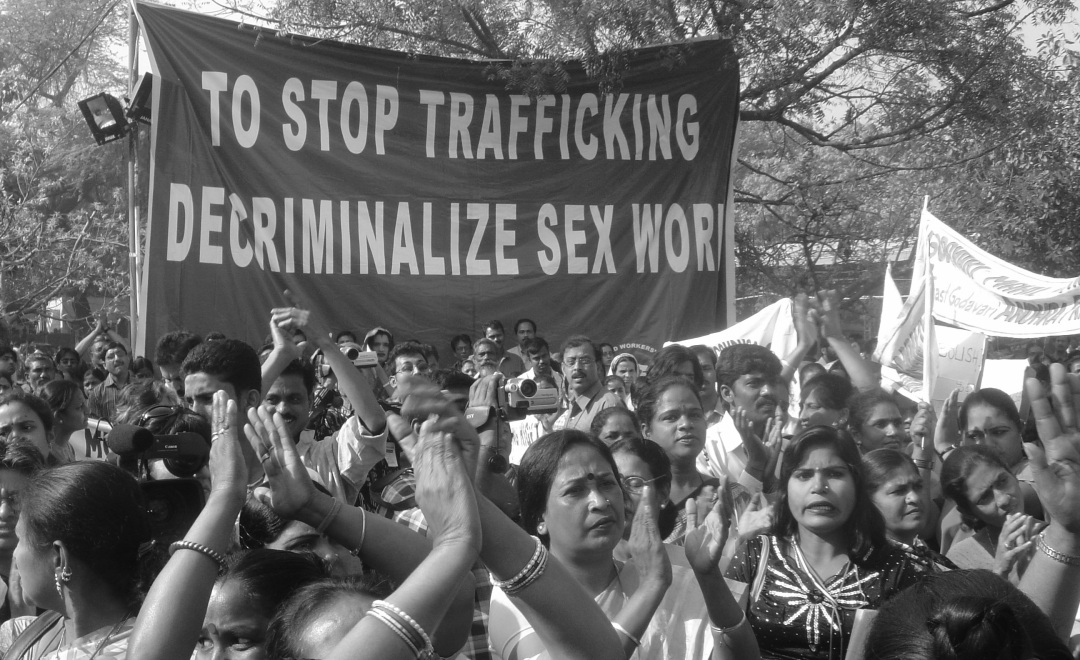Aditi Gupta & Udai Yashvir Singh
ABSTRACT
This article attempts to discuss and address the hazards of conflating “sex work” and “sex trafficking”. It aims to shed light on how criminalization of sex work due to this conflation negatively impacts the lives of sex workers. Further the article analyses whether sex work must be criminalised or decriminalised and ends up suggesting the most suitable alternative for India.
INTRODUCTION
An examination of two different, yet intertwined concepts namely sex work and sex trafficking, is crucial in the contemporary era. It is important to note that while sex work is consensual, trafficking is not. However, when these two minutely different things are mixed, the sex workers are labelled as victims of human trafficking, thereby devaluing the people who are being trafficked.
Section 370 IPC defines human trafficking as follows:-
“Whoever for the purpose of exploitation recruits, transports, harbors, transfers, or receives, a person or persons, by using threats, or using force, or any other form of coercion, or by abduction, or by practicing fraud, or deception, or by abuse of power, or by inducement, including the giving or receiving of payments or benefits, in order to achieve the consent of any person having control over the person recruited, transported, harbored, transferred or received, commits the offence of trafficking”
Explanation 1 of Section 370 states that “Exploitation” includes sexual exploitation. Explanation 2 states that the consent of the victim is considered immaterial in determination of the offence of trafficking, clearly intermingling trafficking and sex work, subsequently giving rise to new problems. According to the aforementioned definition, a sex worker who has explicitly consented to be recruited or transported for sexual services shall still be treated as a victim to human trafficking. Sex work has been defined by sex worker organisations, United Nations agencies, and Commissions as a contractual arrangement in which sexual services are negotiated between consenting adults. Thus, removing the parameter of “consent”, completely intermingles these two “different concepts”.
Prostitution in itself is not an offence, as given in the manner under Section 7 and 81 of the Immoral Traffic (Prevention) Act (“ITPA”), 1956, but it criminalises running of a brothel, rendering sex workers vulnerable to police action in red-light districts. Sex work is viewed as a moral issue, and sex workers are either victims or criminals, according to legal policies. These policies neither provide any “positive” reinforcement for sex workers, nor do they provide them with equal access to health care or education. The goal of this legislation was to rescue victims of human trafficking, but by criminalising organised sex work, it simply legitimises the stigma associated with sex work. Despite the consent of the victim, this Act, instead of safeguarding the victims, discriminates and punishes them for acts like soliciting.
DANGERS OF CONFLATION
The conflation of human trafficking for sexual exploitation with concerns of sex work and voluntary smuggling across international/domestic borders poses a serious threat to both the trafficked people and sex workers. It causes confusion in the media and public image, creates roadblocks to efficient public policy implementation, and in practice ignores sex workers’ human, social, and economic rights.
This conflation has created an assumption that decriminalizing prostitution will facilitate human trafficking. While there is little factual evidence to support this claim, it is perceived that criminalising sex work damages people who operate in the industry. The illegal nature of sex work perpetuates hazardous conditions through a variety of mechanisms, including erecting barriers to health care and social services through discrimination against sex workers; thereby perpetuating poverty and oppression; promoting an underground and stigmatised profession; and creating an economic burden for women due to a lack of bargaining power.[i] Because of the stigma associated with sex work, workers are also vulnerable to assault from family members and intimate partners in their personal areas.[ii] Further, there are a number of instances which show that breach of privacy of sex workers are violated either by the media or government officials. This impacts the daily lives of women and their possibilities for marriage in a conservative society.[iii]
Sex work is done in an informal setting. They are denied a safe working environment through normal labour protection measures[iv] like access to benefits, legal remedy for workplace disputes, and sufficient health and safety laws. Human rights violations such as the detention of sex workers in rehabilitation centres without access to legal counsel or the ability to appeal should be sufficiently protected. Hence protection and safety of sex workers can be ensured if the hazards related to the illegal nature of sex work can be removed.
CRIMINALIZATION OR DECRIMINALIZATION?
Evidently, sex trafficking is against the human rights of any individual owing to its “coercive nature” and prima facie, as it seems, must be criminalised. However, it becomes important to contemplate over sex work. Amnesty International’s resolution (or policy) calls for the decriminalisation of all kinds of sex work based on the consent of both adult individuals involved. Amnesty International claims that decriminalisation would be sufficient to address the wide range of human rights abuses and indignities that prostitutes face. However, it is noteworthy that the model proposed by Amnesty International does not advocate for the legalisation of prostitution, thus distinguishing between “legalisation of prostitution” and “decriminalisation of prostitution” is important.
Full Decriminalisation in India: A solution
A recent study of 3000 sex workers in 14 Indian states discovered that a significant portion of the women had prior experience with alternative employment and chose sex work for higher pay and lifestyle prospects.[v] Decriminalizing sex work is a prerequisite for ensuring sex workers’ physical and mental safety, as well as their right to life, freedom of movement, health, and reproductive and sexual rights. The Independent Commission on AIDS in Asia, UN Special Rapporteur on Right to Health, Global Commission on HIV and the Law and UNDP Asia Pacific have recommended the decriminalisation of sex work involving consenting adults.
The physical and economic vulnerability of sex workers had become increasingly evident in the setting of COVID-19, with rising emphasis in both policy and the media, due to a lack of access to help in pandemic responses. As a result, Human Rights Watch urged in May 2020 that governments that presently ban sex work take measures towards decriminalisation.
It is suggested that, in order to protect the human rights of vulnerable prostitutes, governments should abolish or repeal any laws that make selling or solicitation of sex work and purchasing or procurement of sex work unlawful. Even the Nordic Model which decriminalizes buying or procurement of prostitution but does not decriminalize the sale of sex is still unable to solve the “stigma related problems”. Fully decriminalising sex work fosters an environment in which the reduction and eradication of sex work stigma may be envisioned, and in which it would be feasible to abandon stigmatising narratives and welcome sex workers as equal citizens.
CONCLUSION
Undisputedly, the sex workers are frequently among society’s most marginalised persons. Sex work per se is not ethically wrong, however the criminalization of sex workers in the current times expose them to the risk of human rights violations. They are at a danger of being discriminated against, assaulted, and even detained by the authorities, as well as exploitation and abuse by their employers and clients.
The reality of sex workers in India is a paradox: sex work is legal, but any organisation that employs sex workers is not. Sex workers are allowed to charge for sex, but they are not allowed to solicit sex on the street or manage brothels. When you consider the stigmatisation, lack of healthcare, association with human trafficking, and otherization that sex workers suffer, a mere ‘legal’ stamp on their job does very little.
The distinction between sex workers and victims of forced sexual exploitation and victims of coercive trafficking needs to be crystallized. Self-determination is a central tenet of feminism and decriminalisation will allow sex workers to engage in their profession in the same way that they would in any other job. Rather than eliminating sex work, society must address the hazardous working conditions that sex workers face. Decriminalization will eventually empower sex workers to use more public areas, speak out for themselves, and have a say in the laws that regulate their existence and activity.

[i] Urban Justice Center, Revolving Door: An Analysis of Street-Based Prostitution in New York City, 1- 100, 55-56 (Sex Workers Project/Urban Justice Center) at 38-40.
[ii] Report titled “Violations Faced by Women in India”, Sampada Grameen Mahila Sanstha
[iii] Ibid.
[iv] UNAIDS (2009) Guidance note on HIV and sex work. ILO Recommendation 200 on HIV and the world of work, ECOSOC (2011), Overview of good practices for multi-sectoral cooperation.
[v] Rohini, et. al, Sex work and its linkages with informal labor markets in India: Finding from the first Pan – India Survey of Female Sex Workers, Institute of Development Studies Working Paper, vol. 2013 no. 416, February 2013.
The authors are 3RD Year B.A. LL.B.( Hons.) students at National Law University, Delhi

